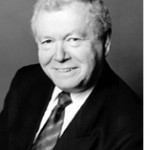By Rabbi Dow Marmur

JERUSALEM — I was wrong when I speculated that Avigdor Lieberman, Israel’s foreign minister, would take his party into Likud to challenge Binyamin Netanyahu for the leadership. But I’m not wrong in believing that Lieberman wants to be the next prime minister of Israel. He said as much in Wednesday’s Ha’aretz that reported a meeting of Israeli business leaders at which Lieberman spoke. The meeting was supposed to be closed but in view of its clear pre-election tone, it was obviously leaked.
In his speech, Lieberman blasted his three rivals for the leadership of the country: (a) the incumbent Binyamin Netanyahu for vainly seeking to maintain the status quo while things around him are rapidly changing; (b) the aspiring Naftali Bennett who wants one state run by Jews, even if the Arabs constitute the majority; (c) the hopeful Isaac Herzog for wanting accommodation with the Palestinians at all costs.
Lieberman styles himself as pragmatic which means that, though he’d give up some outlying settlements in the West Bank he’d retain most, i.e., those close to the Green Line, and offer a land swap. But, judging by his earlier pronouncements, the swap wouldn’t mean say an overland link between the West Bank and Gaza, but to cede areas of Israel currently largely inhabited by Arabs. The fact that they wouldn’t want to become part of a Palestinian state doesn’t seem to bother Lieberman.
This makes him, of course, as unrealistic as he accuses his opponents, though he seems prepared to form a coalition with any of them. At election time politicians say whatever they think will get them votes, whether or not it’s realistic or consistent, and whether or not they intend to keep their promises once they’ve been elected.
In his speech Lieberman had much to say about Russia, which he says he knows best. Whereas Netanyahu is all “American” conducting foreign policy in relation to the United States and particularly seeking support for Israel in the US Congress, Lieberman is more interested in Europe and very interested in Russia.
He warned his audience that the growing negative attitudes to Israel in Europe may lead to sanctions of the kind that are currently crippling Russia, To avert them, Israel must act now and not wait for – dare I say it? – a Messiah in the shape of a Republican US president. Neither is it enough to invoke the Holocaust each time Europeans act in ways unpalatable to Israel, which has been Netanyahu’s standard response.
Lieberman’s way of dealing with the problem isn’t original either. He thinks in terms of a regional settlement, which means involving not only Jordan and Egypt but also Saudi Arabia and other Gulf States, perhaps even the Arab League.
If any other of his rivals were invited to a similar “closed” session of important people, they’d find it easy to blast the Lieberman proposal no less forcefully than he did theirs. The only difference is that the Lieberman line may get a better response from voters. For the electorate is showing disappointment (a) with Netanyahu’s inaction, (b) with Bennett’s radical de facto annexation plans and (c) with Herzog’s allegedly pie-in-the-sky left wing ruminations.
People may, therefore, want to vote for Lieberman not because they like his policies but because they think they dislike them a little less than those of the others. However there’s a snag: it was just announced that Lieberman’s party is being investigated for corruption. All the above may, therefore, turn out to be irrelevant.
*
Rabbi Marmur, spiritual leader emeritus of Holy Blossom Temple in Toronto, now resides in Israel. Your comment may be posted in box below, or you may send it directly to the author at dow.marmur@sdjewishworld.com